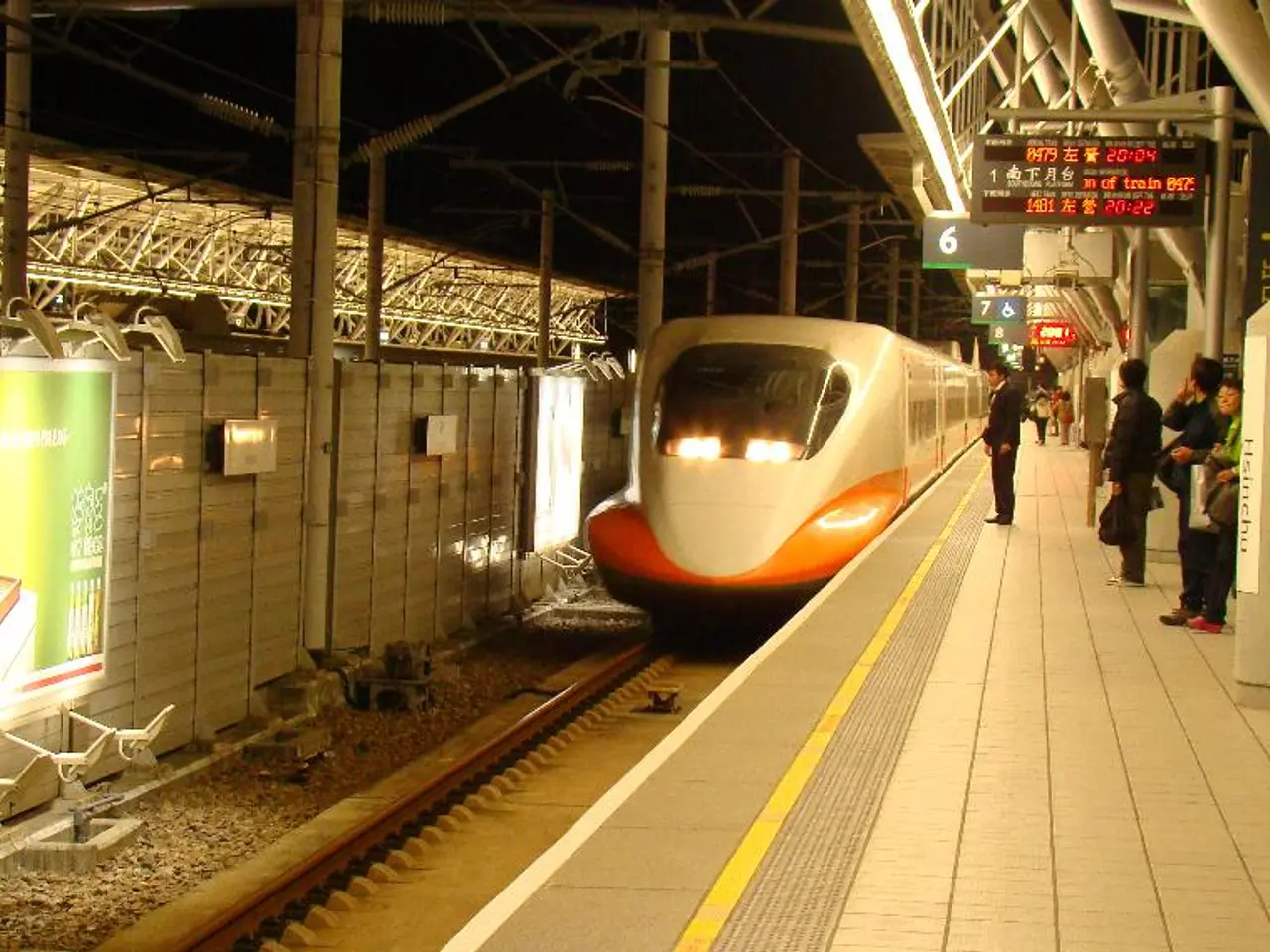Lietuvos gelezėlinkeleio AB's freshly established board begins its tasks
New LTG Board Focuses on Modernizing Railways, Boosting Freight Volumes, and Enhancing Military Mobility
The Lietuvos geležinkeliai (LTG) group, Lithuania's national railway company, has announced a new Board with a four-year term, following the expiry of the term of office of the previous Board. The new Board, approved by Minister of Transport and Communications Eugenijus Sabutis, consists of three independent members: Tomas Zdanavičius, Michael Fohrer, and Peter Nielsen.
The current priorities of the LTG Board focus on the electrification of rail lines, the completion and integration of the European gauge railway Rail Baltica, increasing freight volumes, enhancement of military mobility, and the involvement of foreign experts. These priorities align with Lithuania's broader goals to modernize its railway infrastructure, boost logistics capacity, align with EU transport initiatives, and enhance security via military mobility.
Tomas Zdanavičius, a member of the new Board, holds a master's degree in management and business administration from VILNIUS TECH. He brings more than 20 years of experience in logistics, mainly in management positions, to the table. Michael Fohrer, another new member, has over 30 years of management experience, including 15 years in the rail transport business and rail associations. His international experience as vice-president of Bombardier Transportation GmbH and Railways Transportation Business & Railway Association is particularly relevant. Peter Nielsen, the third member, has been working in Lithuania as the commander of the NATO Force Integration Unit since 2021.
The involvement of foreign professionals on the Board or in advisory roles is likely part of the effort to support these priorities, leveraging expertise in rail electrification, EU projects like Rail Baltica, and logistics optimization.
The selection of two additional independent Board members will be announced shortly. A total of 86 candidates expressed their interest to participate in the LTG Board selection. Four candidates participated in the selection process for civil servants to join the LTG Board.
Agnė Amelija Mikalonė, the Chief Adviser of the Ministry of Transport and Communications, is the only member of the previous LTG Board. The LTG Board will have a total of 7 members, 5 of whom are independent.
The new Board's main priorities, as stated by Minister Sabutis, include the completion of the electrification of the Vilnius-Klaipėda railway line, smoother implementation of the European gauge railway Rail Baltica construction project, increasing freight volumes, and accelerating the implementation of military mobility projects.
[1] Source: Lietuvos geležinkeliai (LTG) group press release, [date]. [2] Source: Ministry of Transport and Communications press release, [date]. [3] Source: Invest Lithuania, [date].
- The new LTG Board, composed of Tomas Zdanavičius, Michael Fohrer, and Peter Nielsen, aims to focus on financing and executing projects for the electrification of rail lines, the completion and integration of the European gauge railway Rail Baltica, increasing freight volumes, and enhancing military mobility, which aligns with Lithuania's goals in the business and finance sectors to modernize railway infrastructure and boost logistics capacity.
- In order to support these objectives, the Board intends to collaborate with foreign experts in rail electrification, EU projects like Rail Baltica, and logistics optimization, as these professionals bring valuable experience from various industries, including transport and business associations.
- The LTG Board will work towards the boosting of freight volumes and military mobility in the transport industry, with a particular focus on the completion of the electrification of the Vilnius-Klaipėda railway line and the smoother implementation of the European gauge railway Rail Baltica construction project, which are key business initiatives aimed at modernizing Lithuania's infrastructure and enhancing its competitiveness in the European market.




